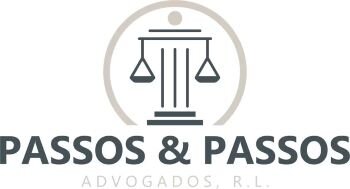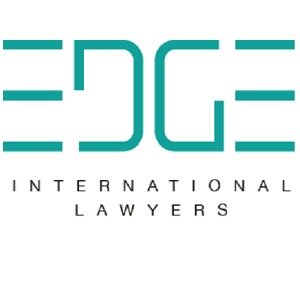Best Structured Finance Lawyers in Portugal
Share your needs with us, get contacted by law firms.
Free. Takes 2 min.
Or refine your search by selecting a city:
List of the best lawyers in Portugal
About Structured Finance Law in Portugal
Structured finance involves complex financial instruments designed to manage risk, raise capital, or facilitate investment through pooled assets and tailored financial arrangements. In Portugal, structured finance is a prominent method used by financial institutions, corporations, and investment funds, especially for securitizations, project finance, syndicated loans, and asset-backed securities. The sector has grown rapidly as Portugal modernizes its financial regulations to align with European Union directives and global best practices. Legal frameworks ensure that these transactions are both compliant and effective for all parties involved.
Why You May Need a Lawyer
Structured finance transactions are intricate and require precise legal documentation, regulatory compliance, and risk management. You may need a lawyer in situations such as:
- Structuring and negotiating securitization deals or asset-backed securities.
- Advising on cross-border structured finance transactions.
- Ensuring compliance with EU and Portuguese laws regarding financial instruments.
- Drafting and reviewing complex contracts and financing arrangements.
- Addressing tax implications and regulatory filings related to structured finance transactions.
- Representing clients in disputes or litigation arising from structured finance agreements.
- Obtaining regulatory approvals from Portuguese authorities.
An experienced lawyer helps you avoid legal pitfalls, minimizes financial risks, and protects your interests throughout each transaction.
Local Laws Overview
Portugal's structured finance legal landscape is influenced by both national regulations and European Union directives. Key aspects include:
- Securitization Law: Portugal has a dedicated securitization law outlining rules for the issuance of securities backed by receivables or other assets. This includes the establishment of securitization vehicles and the protection of investors’ rights.
- Regulatory Authorities: The Portuguese Securities Market Commission (CMVM) supervises all relevant finance transactions to ensure investor protection and market stability.
- EU Directives: As an EU member, Portugal implements directives such as MiFID II, the Prospectus Regulation, and the Securitization Regulation, which set standards for transparency and investor information.
- Taxation: Portugal offers favorable tax frameworks for certain structured finance vehicles but compliance with tax reporting is critical.
- Bankruptcy and Creditor Rights: Recent reforms have strengthened creditor protections and clarified the treatment of financial assets in insolvency proceedings.
Legal professionals familiar with both domestic and EU regulations are essential for successful structured finance operations in Portugal.
Frequently Asked Questions
What is structured finance?
Structured finance refers to financial transactions that involve pooling assets and creating securities or instruments tailored to specific risk and return requirements. This often includes securitization, project finance, and derivatives.
Is structured finance legal in Portugal?
Yes, structured finance transactions such as securitizations and syndicated loans are regulated and widely practiced in Portugal, subject to compliance with local and EU laws.
Who regulates structured finance activities?
The main regulator is the Portuguese Securities Market Commission (CMVM), along with the Bank of Portugal for certain banking transactions.
What are typical assets used in Portuguese securitizations?
Common assets include residential and commercial mortgages, leasing receivables, consumer loans, trade receivables, and other financial claims.
What are the legal requirements for setting up a securitization vehicle?
Securitization vehicles must be established as special purpose entities and comply with regulations regarding registration, asset segregation, disclosure, and ongoing supervision by the CMVM.
Are there tax advantages for structured finance in Portugal?
Certain vehicles benefit from favorable tax regimes, especially if structured as collective investment undertakings. However, all transactions must comply with national and EU tax laws.
Can foreign investors participate in structured finance deals?
Yes, foreign investors can participate, but must comply with applicable regulations, including anti-money laundering checks and reporting requirements.
How long does it take to establish a structured finance transaction?
The timeframe can vary significantly depending on transaction complexity, asset types, and regulatory approvals. Many transactions require several weeks to a few months to complete.
What happens if a borrower defaults in a structured finance arrangement?
The rights of investors and creditors are defined by contract and local laws. In general, Portuguese law provides robust protections, but legal counsel is crucial to enforce claims effectively.
What legal risks are involved with structured finance?
Risks include potential regulatory changes, incorrect structuring, tax liabilities, and counterparty defaults. Legal advice helps to mitigate these risks through due diligence and robust documentation.
Additional Resources
If you are seeking more information or professional support, consider consulting the following organizations and resources:
- Portuguese Securities Market Commission (CMVM): The regulator for Portugal’s financial markets with guidance, regulatory updates, and investor protection resources.
- Bank of Portugal: Oversees banks and certain financial transactions, offering guidance on compliance and licensing.
- Associação Portuguesa de Fundos de Investimento, Pensões e Patrimónios (APFIPP): The industry body for investment funds and asset managers, providing updates and best practices.
- Portuguese Bar Association (Ordem dos Advogados): Directory of qualified lawyers specializing in structured finance and related fields.
- International Financial Reports and Guidance: Regular publications from EU bodies and financial think-tanks provide insights into the evolving structured finance landscape in Portugal and Europe.
Next Steps
If you require legal assistance in structured finance, consider the following steps:
- Gather relevant documentation concerning your intended transaction or area of interest.
- List your objectives, the parties involved, and any specific legal questions or concerns you have.
- Identify and contact a lawyer with proven experience in structured finance law in Portugal. Consider asking for references or case studies.
- Schedule a consultation to discuss your needs and assess possible legal strategies or risks.
- Work closely with your legal advisor throughout the process to ensure full compliance and optimal structuring of your deal.
Legal guidance is essential to navigate the complexities of structured finance in Portugal. An experienced legal professional will help you achieve your financial goals while ensuring compliance and robust risk management.
Lawzana helps you find the best lawyers and law firms in Portugal through a curated and pre-screened list of qualified legal professionals. Our platform offers rankings and detailed profiles of attorneys and law firms, allowing you to compare based on practice areas, including Structured Finance, experience, and client feedback.
Each profile includes a description of the firm's areas of practice, client reviews, team members and partners, year of establishment, spoken languages, office locations, contact information, social media presence, and any published articles or resources. Most firms on our platform speak English and are experienced in both local and international legal matters.
Get a quote from top-rated law firms in Portugal — quickly, securely, and without unnecessary hassle.
Disclaimer:
The information provided on this page is for general informational purposes only and does not constitute legal advice. While we strive to ensure the accuracy and relevance of the content, legal information may change over time, and interpretations of the law can vary. You should always consult with a qualified legal professional for advice specific to your situation.
We disclaim all liability for actions taken or not taken based on the content of this page. If you believe any information is incorrect or outdated, please contact us, and we will review and update it where appropriate.
Browse structured finance law firms by city in Portugal
Refine your search by selecting a city.















